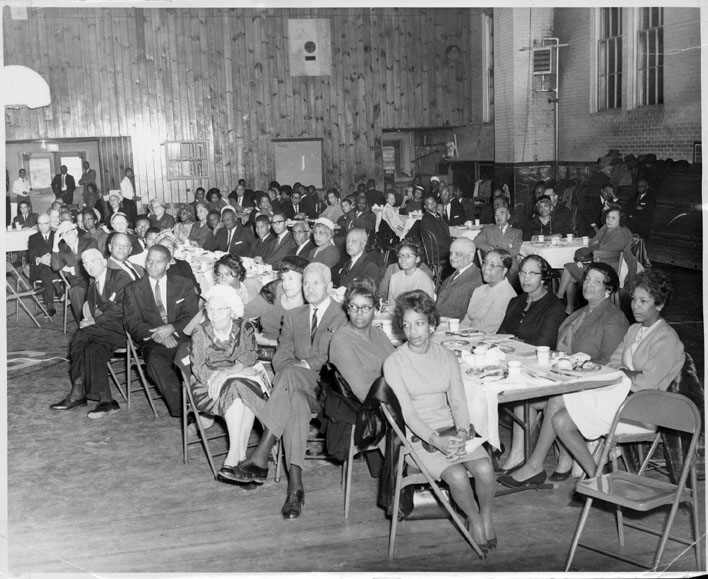Over the following weeks, we will take a decade-by-decade look at the local YWCA’s involvement in Asheville’s integration. The group’s African American division, the Phyllis Wheatley branch, got its start as an informal weekly meeting of women working to support and aid each other in finding employment opportunities. By 1921, almost a decade after these meetings commenced, the branch officially opened. It was named after the first published African American poet, Phyllis Wheatley. Adela Ruffin, a member of the national YWCA staff, was named the general secretary of the Phyllis Wheatley Branch in Asheville.
The following year, on April 12, 1922, the Asheville Citizen reported on its progress:
“The Phyllis Wheatley branch of the Y.W.C.A. for colored women and girls begun in 1921, is developing into a well organized unit, and it is hoped, will soon prove self-supporting. At present, the local association is responsible for the salaries of the general secretary and the girls work secretary. Last month this work included 17 class meetings with an average attendance of 159 and 36 club meetings with an attendance of 585. The monthly cost of this work is $166.”
Throughout its early stages, the Phyllis Wheatley Branch held meetings to discuss interracial relations and ways to improve and promote community engagement and cohesion. A Jan. 31, 1929, Asheville Citizen article highlighted Adela Ruffin’s talk, “The Progress of Racial Understanding in the South.”
Similar discussions and lectures continued in the 1930s. “Better Race Relationship” and “How It Feels to be Colored,” were among the addresses Ruffin offered at the local branch. A May 6, 1937 Asheville Citizen article ran excerpts from one such talk, noting that:
“Adelle [sic] Ruffin, negro, secretary of the Phyllis Wheatley branch of the Y.W.C.A … told the students to: ‘Stand tall, keep your heads up, keep your self-respect. That’s what adult education will do for you. Make friends with the white people around you. The white people of the south are the best friends the negro has.’”
Despite its early promise, by 1936, financial troubles threatened the ongoing operation of the Phyllis Wheatley Branch. This led the Asheville YWCA to seek greater control of the division, including authority over bookkeeping and stricter enforcement of national YWCA rules. But, unwilling to lose its autonomy and voice as an independent unit, the Phyllis Wheatley Branch refused to comply. That decision led to the YWCA Asheville dissolving it on May 20, 1936.
Its termination resulted in the creation of the unaffiliated Phyllis Wheatley Center. The YWCA allowed the center to remain at its location at 360 College St. Ongoing financial strain, however, reunited the two organizations, when, on Feb. 1, 1938, the Phyllis Wheatley branch was reinstated as a division of the YWCA, in full compliance with the national guidelines.
Next week we will continue with a look at the Phyllis Wheatley Branch’s activity in Asheville during the 1940s and 1950s.




Before you comment
The comments section is here to provide a platform for civil dialogue on the issues we face together as a local community. Xpress is committed to offering this platform for all voices, but when the tone of the discussion gets nasty or strays off topic, we believe many people choose not to participate. Xpress editors are determined to moderate comments to ensure a constructive interchange is maintained. All comments judged not to be in keeping with the spirit of civil discourse will be removed and repeat violators will be banned. See here for our terms of service. Thank you for being part of this effort to promote respectful discussion.